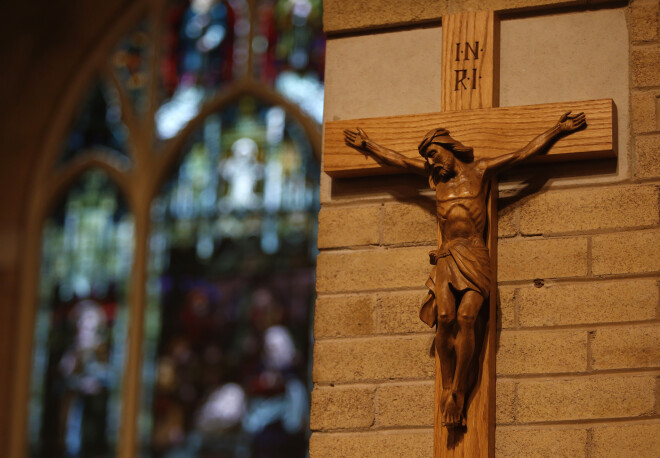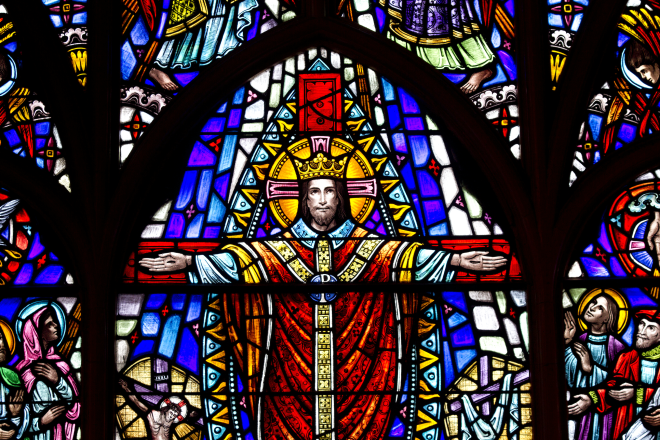Head of Church

We have been focused in our gaze on the altar and at its center, the wounded Lamb. Our reflection has been about who He is, in Himself and for us. Now we need to think about what the ancient Church the ‘totus Christus,’ ‘the whole Christ,’ by which they meant the Lord together with the Church, His Body. As a segue, we now turn to this concept.
In Colossians 1:18 we read that He is, more precisely, the head of the Church. Notice how this contains both his intimate connection and His distinctive pre-eminence. Another way to put the matter is that the Lord chooses out of His love to condescend to and identify with us. In going on high is His going low (Ephesians 4). Or we might point out how the treasure (the good news about Jesus) is placed in the clay pot - the two are connected but distinguishable.
You can see how, rightly understood, we keep track of both, as we make sure He remains Lord. You might say that the catholic dimension is in the connection, the evangelical in the distinction. We can also see how things might go wrong - either supposing the Church is the Lord, or on the other hand that we can be Christians on our own.
Read Articles 18-20 and discuss.



